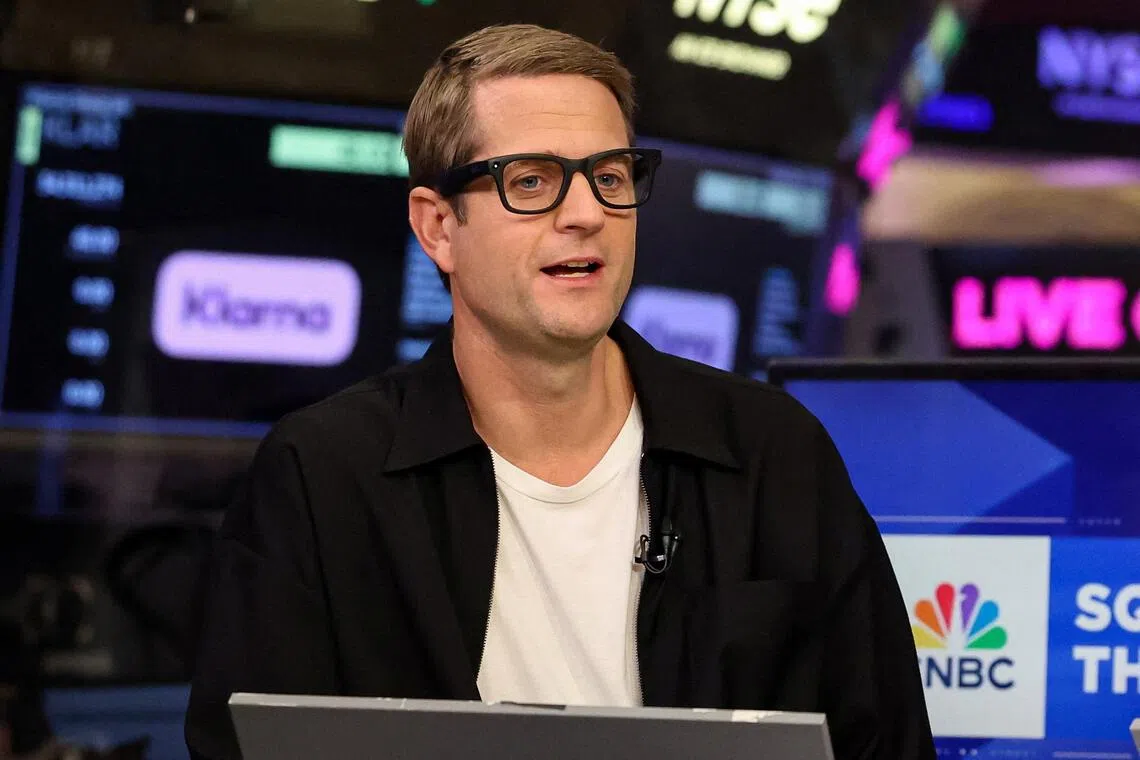AI jobs shock is coming and companies are not ready, Klarna CEO says
Sign up now: Get ST's newsletters delivered to your inbox

Klarna Group chief executive Sebastian Siemiatkowski is one of artificial intelligence’s biggest cheerleaders in finance.
PHOTO: REUTERS
Follow topic:
LONDON – From technology firms to translators, the world has not faced up to the consequences of artificial intelligence (AI) wiping out swathes of jobs, according to one of AI’s biggest cheerleaders in finance.
“I feel a lot of my tech bros are being slightly, you know, not to the point on this topic. I think there is a massive shift coming to knowledge work. And it’s not just in banking, it’s in society at large,” fintech company Klarna Group’s chief executive Sebastian Siemiatkowski said in an interview with Bloomberg Television.
“Society will have to figure out what are we going to do because yes, new jobs will be created, but in the shorter term, that doesn’t help the Brussels translator. He’s not going to become a YouTube influencer tomorrow,” he added.
Klarna, best known for its “buy now, pay later” product, has invested heavily in AI, with Mr Siemiatkowski declaring in 2023 that he wanted to be OpenAI’s “favourite guinea pig”. That enthusiasm was in part driven by Klarna’s need to shed costs after the end of the fintech boom.
While this approach allowed Klarna to stop hiring for over a year and shrink its headcount from 7,400 to about 3,000 while boosting pay, the firm has since found that the tools have some limits. It recruited more customer service personnel earlier in 2025 to ensure users can always talk to a human, and Mr Siemiatkowski said Klarna does not currently use much AI around underwriting decisions.
But the Swedish CEO still believes that AI can do an equal, or even better, job of handling customer issues. “You can build a lot of trust by having AI perform specific types of task because of the consistency and quality,” he said.
Klarna, which floated in New York in September, has grown to more than 114 million customers – larger than many traditional banks. “Obviously those customers don’t necessarily bank fully with us just yet, but that has to be the aspiration,” Mr Siemiatkowski said. The firm obtained an electronic money licence in the UK in 2025, allowing it to offer more financial services and compete with the likes of Revolut.
The CEO sees the AI boom spelling the end to what he calls “excess profits” in both the banking and software industries, as incumbents are overtaken by faster-moving challengers.
“Most legacy banks will probably become pure balance sheets where basically, you have a big balance sheet and you optimise for return on equity and that’s pretty much it,” he said.
On a personal level, Mr Siemiatkowski remains keen on using AI “all the time”, picking up so-called vibe coding earlier in 2025 to explore Klarna’s code base.
“My wife is complaining because when the kids go to sleep, I’m like, ‘Hey, can I just go and vibe code a bit?’ So she’s not too happy with me. But it’s so intriguing, it’s so fantastic to learn these technologies. People should not be afraid of technology.” BLOOMBERG

